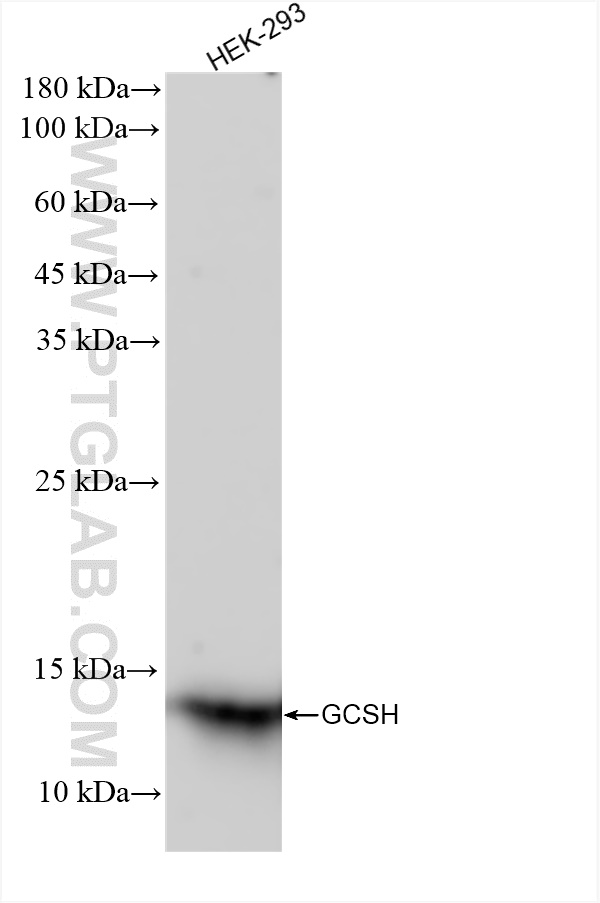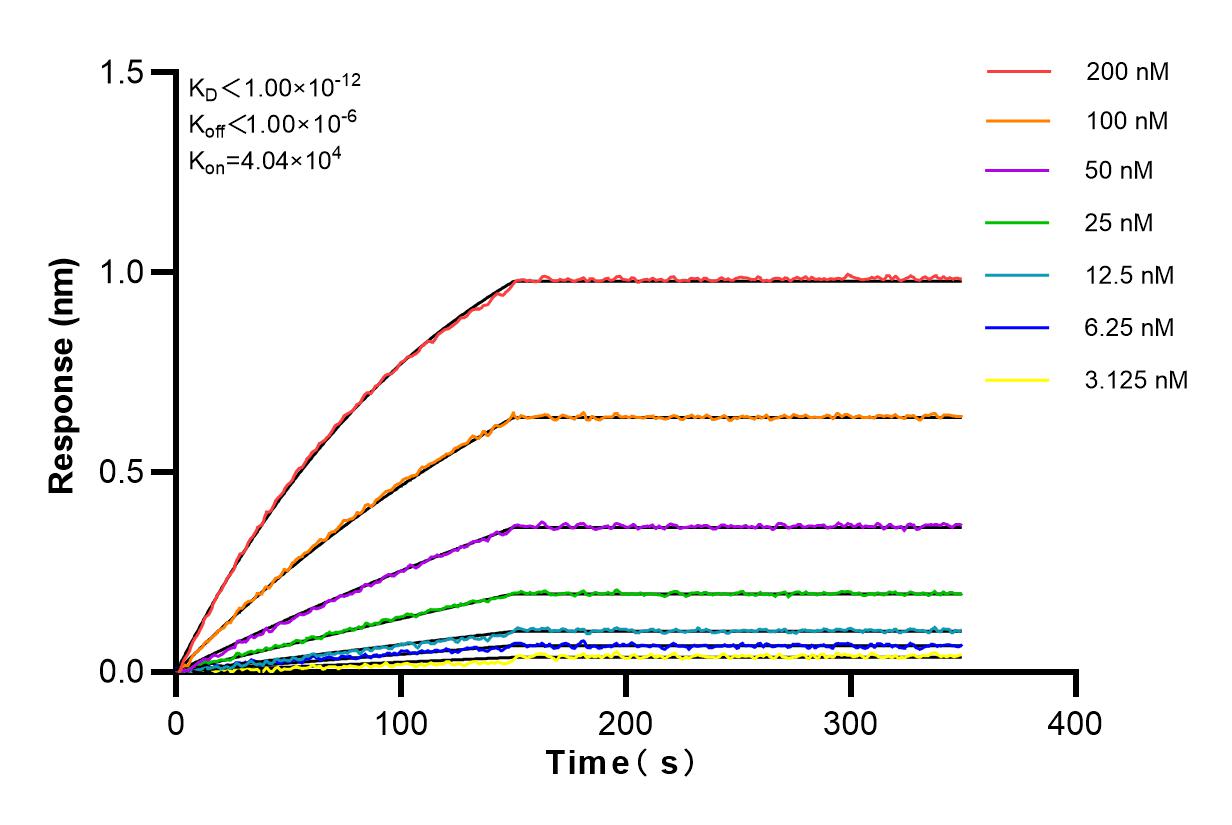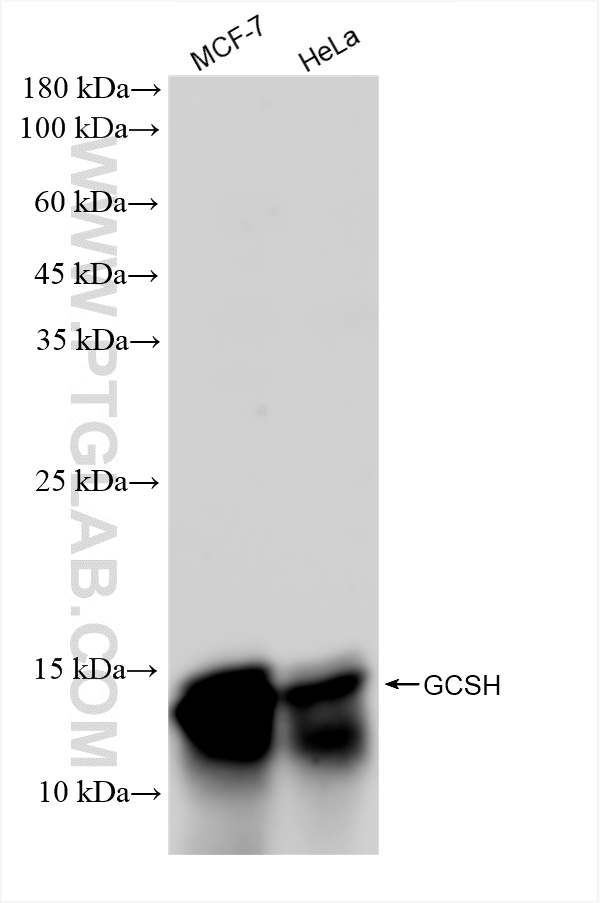验证数据展示
经过测试的应用
| Positive WB detected in | HEK-293 cells, MCF-7 cells, HeLa cells |
推荐稀释比
| 应用 | 推荐稀释比 |
|---|---|
| Western Blot (WB) | WB : 1:5000-1:50000 |
| It is recommended that this reagent should be titrated in each testing system to obtain optimal results. | |
| Sample-dependent, Check data in validation data gallery. | |
产品信息
83012-5-RR targets GCSH in WB, ELISA applications and shows reactivity with Human samples.
| 经测试应用 | WB, ELISA Application Description |
| 经测试反应性 | Human |
| 免疫原 |
CatNo: Ag10174 Product name: Recombinant human GCSH protein Source: e coli.-derived, PGEX-4T Tag: GST Domain: 1-173 aa of BC000790 Sequence: MALRVVRSVRALLCTLRAVPLPAAPCPPRPWQLGVGAVRTLRTGPALLSVRKFTEKHEWVTTENGIGTVGISNFAQEALGDVVYCSLPEVGTKLNKQDEFGALESVKAASELYSPLSGEVTEINEALAENPGLVNKSCYEDGWLIKMTLSNPSELDELMSEEAYEKYIKSIEE 种属同源性预测 |
| 宿主/亚型 | Rabbit / IgG |
| 抗体类别 | Recombinant |
| 产品类型 | Antibody |
| 全称 | glycine cleavage system protein H (aminomethyl carrier) |
| 别名 | GCE, GCSH, NKH |
| 计算分子量 | 19 kDa |
| 观测分子量 | ~15 kDa |
| GenBank蛋白编号 | BC000790 |
| 基因名称 | GCSH |
| Gene ID (NCBI) | 2653 |
| RRID | AB_3670756 |
| 偶联类型 | Unconjugated |
| 形式 | Liquid |
| 纯化方式 | Protein A purfication |
| UNIPROT ID | P23434 |
| 储存缓冲液 | PBS with 0.02% sodium azide and 50% glycerol, pH 7.3. |
| 储存条件 | Store at -20°C. Stable for one year after shipment. Aliquoting is unnecessary for -20oC storage. |
背景介绍
GCSH(Glycine cleavage system H protein, mitochondrial) is a component of the glycine cleavage system loosely associated with the mitochondrial inner membrane and has lipoic acid as a prosthetic group. The full-length GCSH cDNA encodes a precursor protein of 173 amino acids and a mature protein of 125 amino acids. The lipoylation of H-protein occurs in mitochondria which probably contain an activated form of lipoic acid as well as other components required for the transfer of lipoic acid to the protein(PMID:2211640). Defects in GCSH are a cause of non-ketotic hyperglycinemia (NKH).
实验方案
| Product Specific Protocols | |
|---|---|
| WB protocol for GCSH antibody 83012-5-RR | Download protocol |
| Standard Protocols | |
|---|---|
| Click here to view our Standard Protocols |




